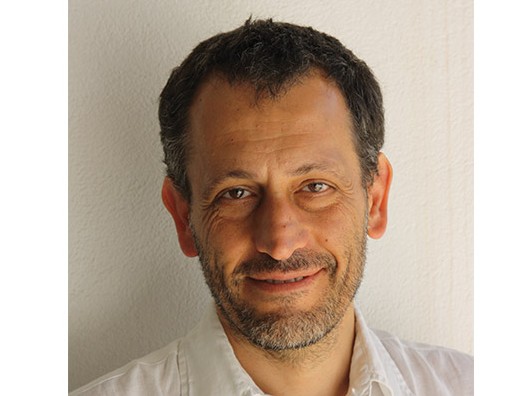
Op 1 May 2014 Professor Vincenzo Fogliano held his inaugural address in acceptance of his new position as chair of Wageningen UR’s Food Quality and Design (FQD) group. In his speech, he emphasised the importance of the development of healthier foods and sustainable production methods.
Vincenzo Fogliano, who was previously Professor of Food Chemistry and Functional Foods at the University of Naples, has replaced Professor Tiny van Boekel as chair of the FQD group at Wageningen UR. FQD performs research and provides education in the field of designing foodstuffs with specific properties such as health, flavour, satiation or sustainability. This entails an integrated approach involving various technological and social-science disciplines. FQD’s research is primarily focused on plant foods, dairy, alternative protein sources and quality management.
With regard to the health aspects of fruit and vegetables, FQD conducts research into the levels of various health-promoting phytochemicals which occur naturally in plants. Much of the research has been performed on vegetables from the Brassica family such as broccoli and other cruciferous vegetables which contain glucosinolates. Studies have shown that these compounds may help to prevent certain common types of cancer. However, due to the influence of various processes in the course of the production chain, the levels of these compounds in end products can vary enormously. Optimising the entire chain can therefore deliver significant gains for human health. Researching and scientifically modelling the change mechanisms in the levels of these compounds makes it possible to optimise them efficiently. This will enable the development of food products which are guaranteed to contain a higher level of health-promoting substances than the products that are currently available on the market.
One good example of a fundamental research project which has direct practical applications is the development of vegetable pasta. Green pasta which has been coloured using spinach is already available on supermarket shelves but the vegetable content in such pasta is very low. In collaboration with Wageningen UR’s Food Physics group, researchers at FQD have explored ways of considerably increasing the vegetable content in green pasta. This research project has resulted in the development of pasta which is 20% dried broccoli powder and yet has a good flavour and texture. The consumption of 100 grams of such pasta is roughly equivalent to eating 200 grams of boiled broccoli. When served with a tasty tomato sauce, this would account for well above the recommended daily vegetable intake!
Another FQD research line concentrates on dairy products. Studies are conducted into how the composition of the milk affects the quality of various end products. The research revolves around product quality, sustainability and human health. For example, does cow’s milk contain certain proteins which could be substitutes for specific properties of human breast milk in infant formula?
A further important area of FQD’s research is the use of alternative sources of protein in order to meet the growing global demand for protein-rich products. This involves exploring the sustainability aspects and potential applications for insects and pulses. In addition to the technological aspects of such proteins, another consideration for FQD is consumer acceptance for these alternatives. How would consumers react to seeing ‘mealworm protein’ on the list of ingredients?
The ultimate product quality is not only influenced by the quality of the raw materials and the technological processes; the effects of human interaction with the foods throughout the chain – during production, preparation and consumption – are crucial too. Another important research focus for FQD is therefore the behaviour of both production employees and consumers, and the impact of that behaviour on food quality. For example, research is currently being conducted into the effectiveness of various food quality management systems.
FQD offers various opportunities for collaboration with companies, including with SMEs, in terms of both education and research. Imagine a group of enthusiastic students who spend a number of weeks tackling a real-life case. Numerous companies have already made use of the knowledge and creativity of students to gain or further develop ideas for new products or processes. It is also possible to work with students on four- or six-month research projects, either as graduation projects or in the form of an internship. Larger projects can be tackled as a four-year doctoral research topic. Such projects can be sponsored by companies, either individually or in collaboration alliances, and government subsidies are often available.
‘FQD offers various opportunities for collaboration with companies’
Smaller projects can also be eligible for significant funding through so-called ‘innovation vouchers’ for SMEs. Every type of collaboration with companies is based on clear and firm agreements about the confidentiality of the results. The initial discussion about a potential new collaboration opportunity is always without obligation.
www.wageningenur.nl/fqd
www.facebook.com/FoodQualityAndDesign
Source: Broccoli: ©iStock/Difydave